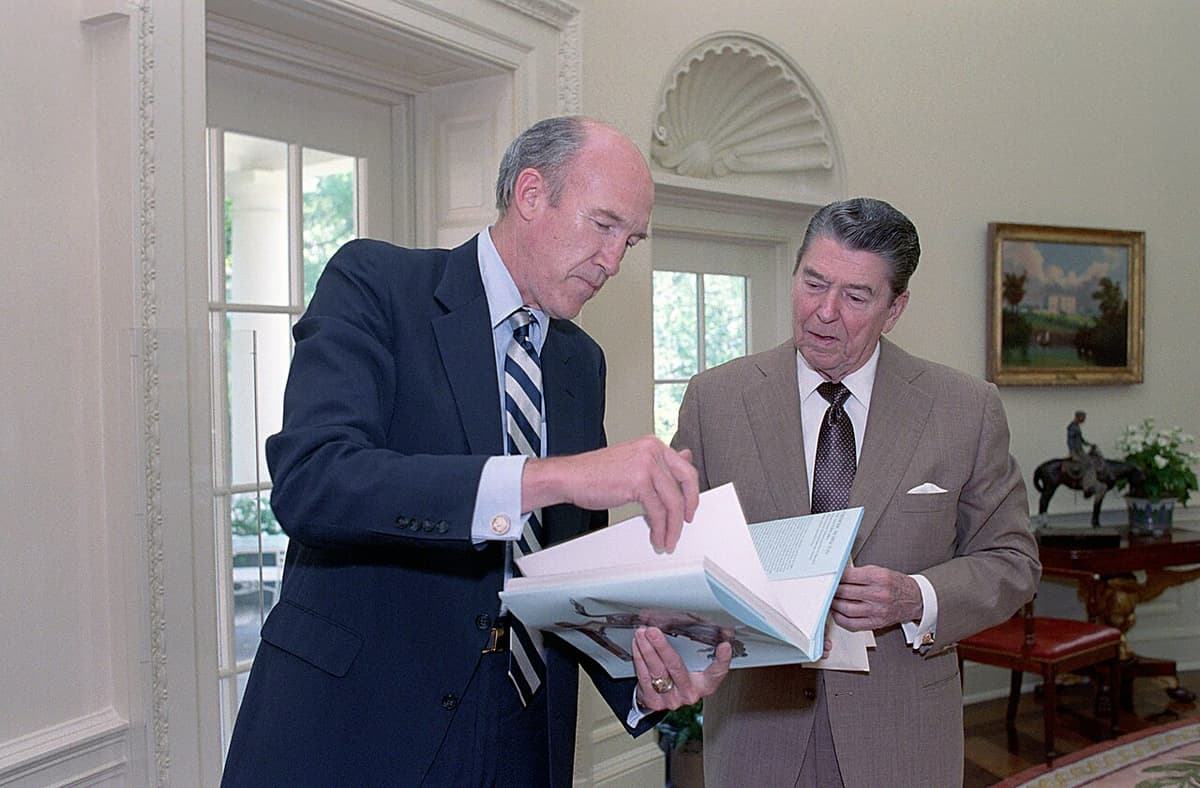Senator Simpson’s Unfinished Immigration Debate
The Wyoming solon proved a prophet of sorts on the challenge posed by America’s unregulated southern border.

News of the death of Senator Simpson is received at the Sun with sadness. He represented Wyoming in the upper chamber for nearly two decades until 1997. Simpson, who had a peppery personality in the best sense of the word, became embroiled in an epic feud with the editorial page of the Wall Street Journal over immigration. Simpson was for a more restrictive policy, while the Journal was — to oversimplify — for letting the market regulate immigration.
From the remove of two generations the feud — in which we pulled an oar in the editorial galley of the Journal — reminds of the rabbinical court in which the Rabbi said to the plaintiff, “you’re right.” When the defense spoke up, the Rabbi thundered ‘You’re right, too.” And when the witness said, “They can’t both be right,” the Rabbi growled “You’re right, too.” To us it looks like the Journal won the battle of principle and Simpson of prevision.
Simpson’s prevision was to grasp what a huge political issue was being created by the failure of Congress to regulate migration across the southern border with Mexico. As far back as 1982, Simpson was warning that immigration was “out of control.” In Trumpian language, he said that it posed “one of the greatest threats to the future of this country.” His efforts to push immigration limits, though, faced hurdles that strike a familiar chord.
There was hostility from liberals, like Senator Kennedy of Massachusetts, who fretted about discriminating against minorities. Business groups, too, like the United States Chamber of Commerce, stressed the economy’s need for labor. That opposition stalled Simpson’s immigration bill for years in Congress, in part because the bill’s backers sought to make employers responsible for ensuring their employees had entered the country legally.
The Journal’s editorial page was having none of it. “Small-business men, watch out,” an editorial titled “Employers as Cops” warned in 1982. Simpson’s bill, with its “civil and criminal penalties on employers who knowingly hire illegal immigrants,” the editorial reckoned, “would provide you with another regulatory nuisance, without solving the problem it is intended to solve.” Worse, the penalties “will not remove the incentives for illegal immigration.”
The acrimony that arose over Simpson’s border bill resonates today, especially amid the furor that broke out within President Trump’s entourage over how to achieve his campaign vow to get the border under control while preserving the labor supply needed for growth. A clash erupted over whether to continue the use of H1-B visas that tech firms use to hire foreign staffers, or whether to limit such visas to make sure more native-born Americans get such jobs.
In many respects, the debate that Simpson helped to start more than 40 years ago is as unsettled as ever. The Journal’s editorial posture then was skeptical of regulating the border. In one editorial from 1984, titled “Defending the Tortilla Curtain,” the Journal averred that the porosity of the southern border meant that “the U.S. has no realistic alternative to a liberal immigration policy,” and that “any system will inevitably be messy.”
A prior editorial, “In Praise of Huddled Masses,” defended — if in theory — open borders as befitting “a nation of immigrants.” In 1986 Simpson’s bill was enacted in a compromise. The mandate on employers was included, as was a de facto amnesty for illegals who had entered before 1982. There the matter rested, more or less, until outcry over the porous border helped stir voters twice to hoist Mr. Trump into office with a mandate to resolve the crisis.
Though we were on the other side of the debate from Simpson, we have thought of the Wyoming wise man over the years as the country could not long ignore the resentment that was building up in respect of immigration, exacerbated by a welfare state that ended up steering enormous subsidies to illegals and their families. The debate Senator Simpson started may not be over, but his passing is a moment to doff one’s cap as his caisson passes by.

